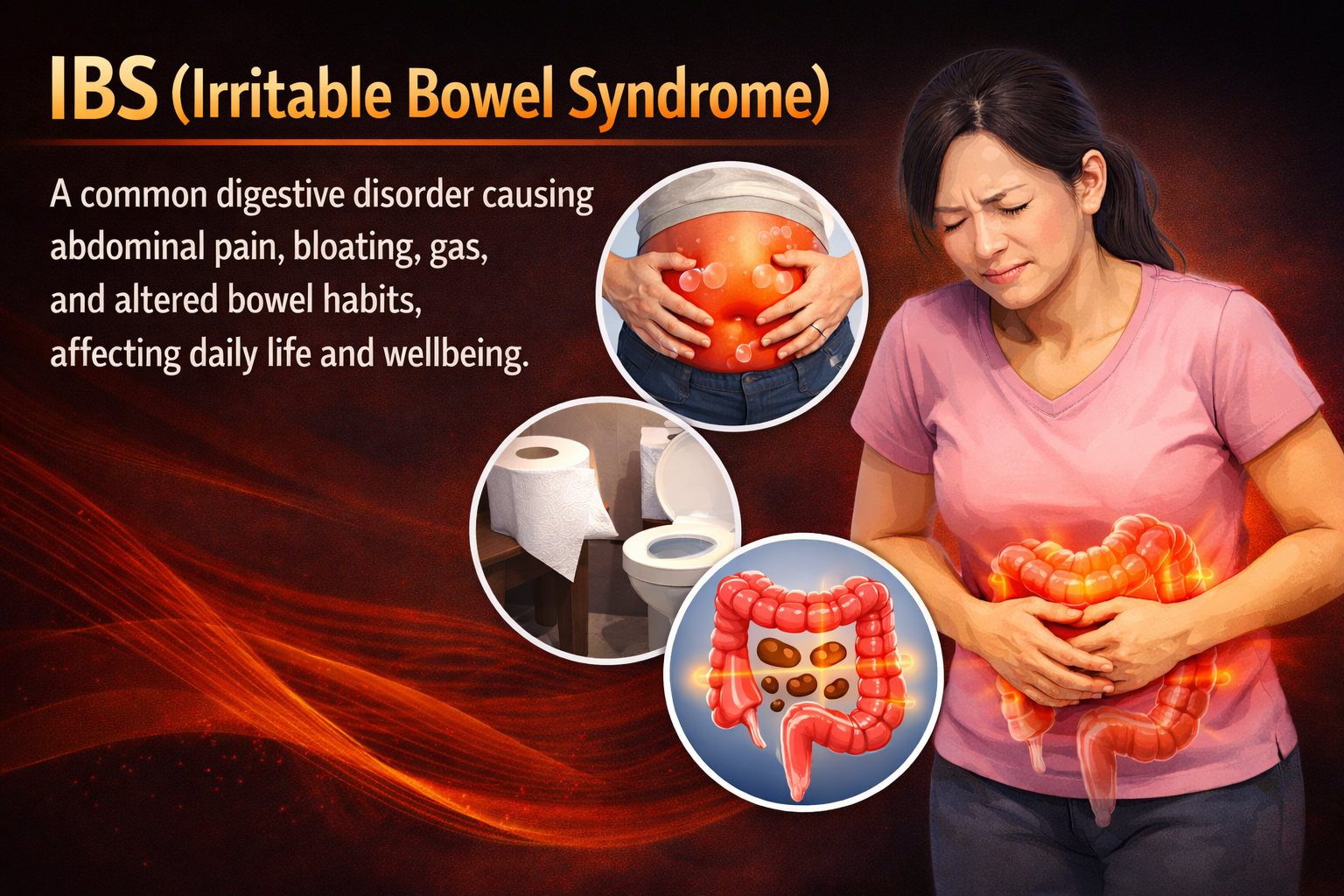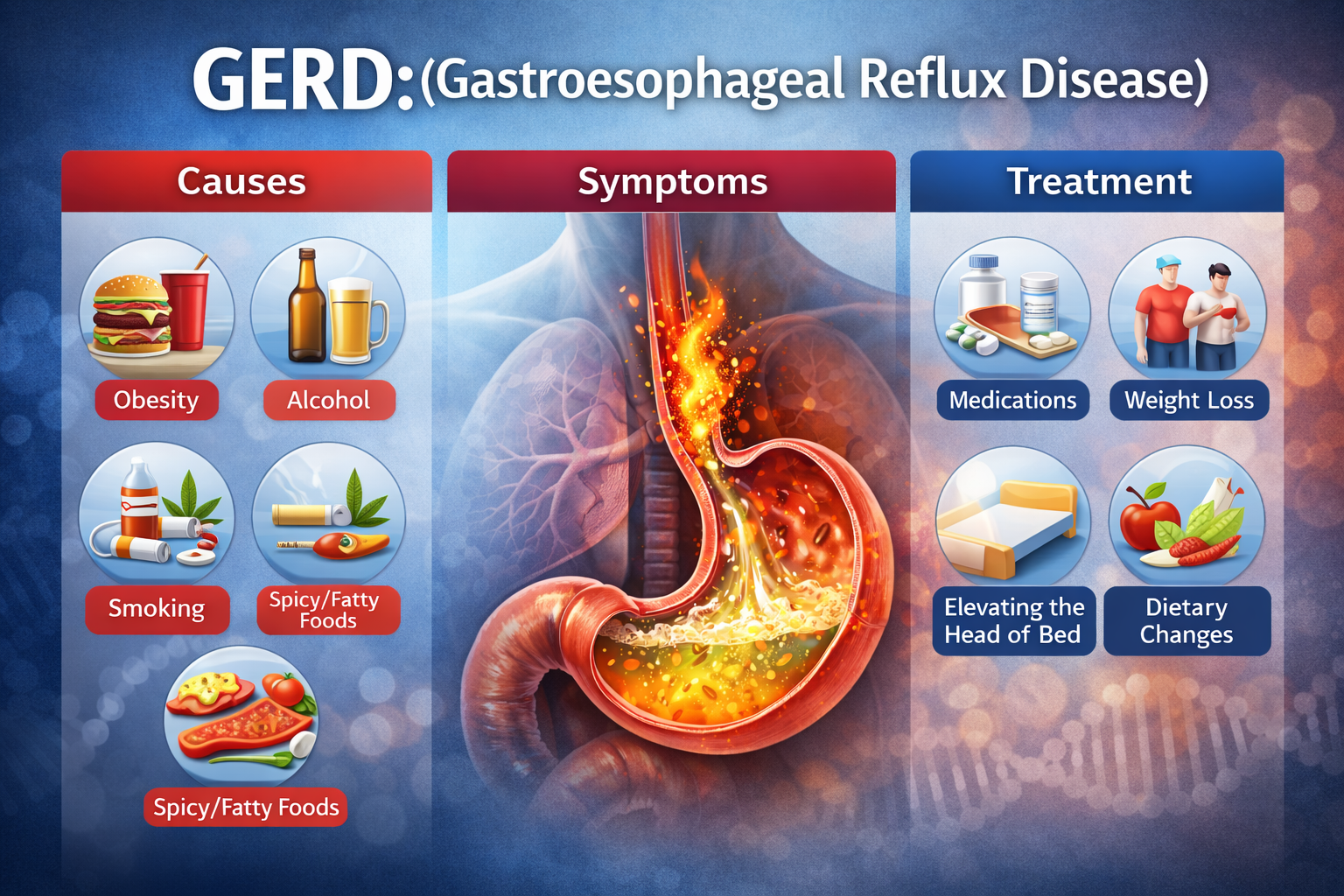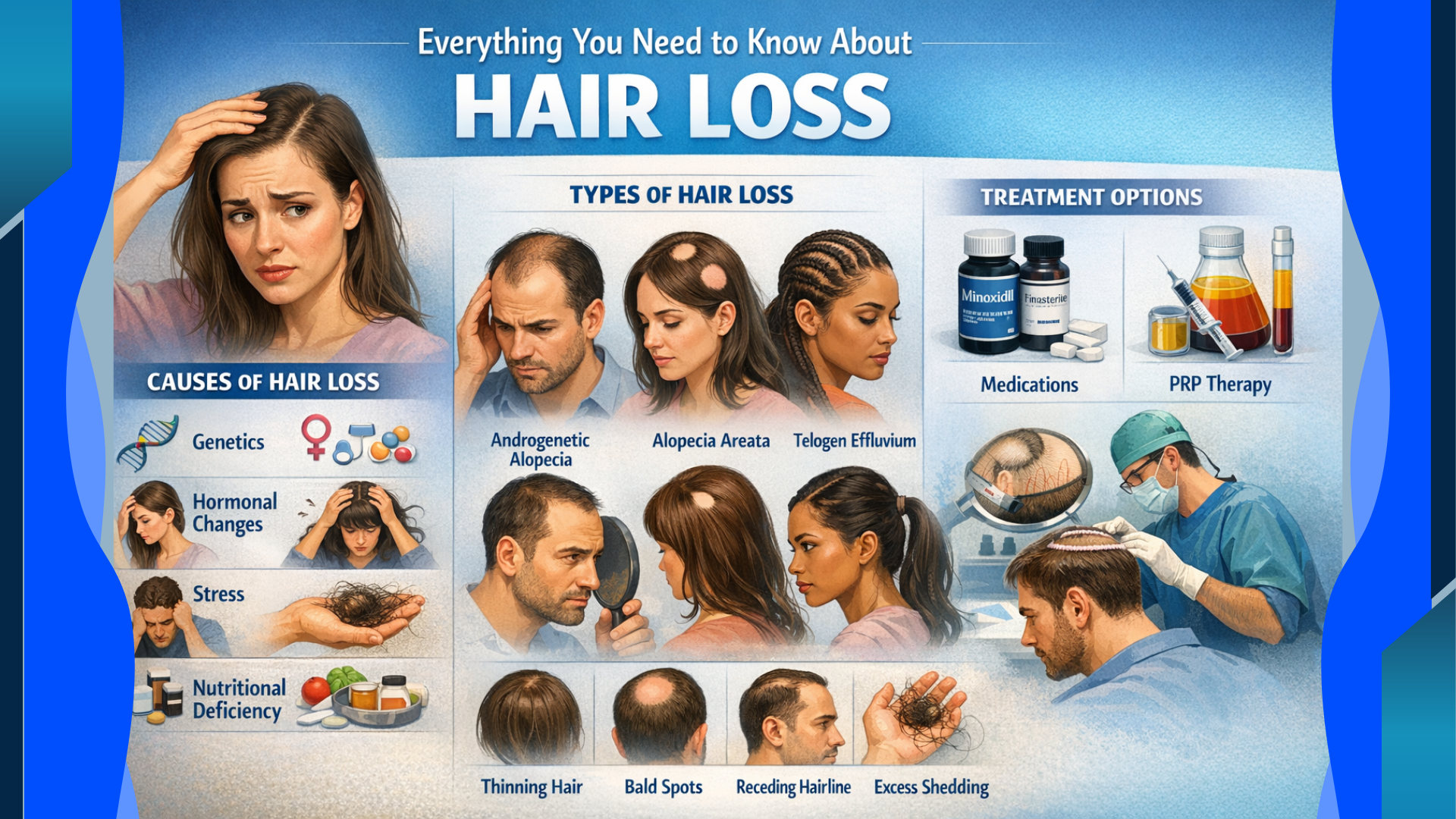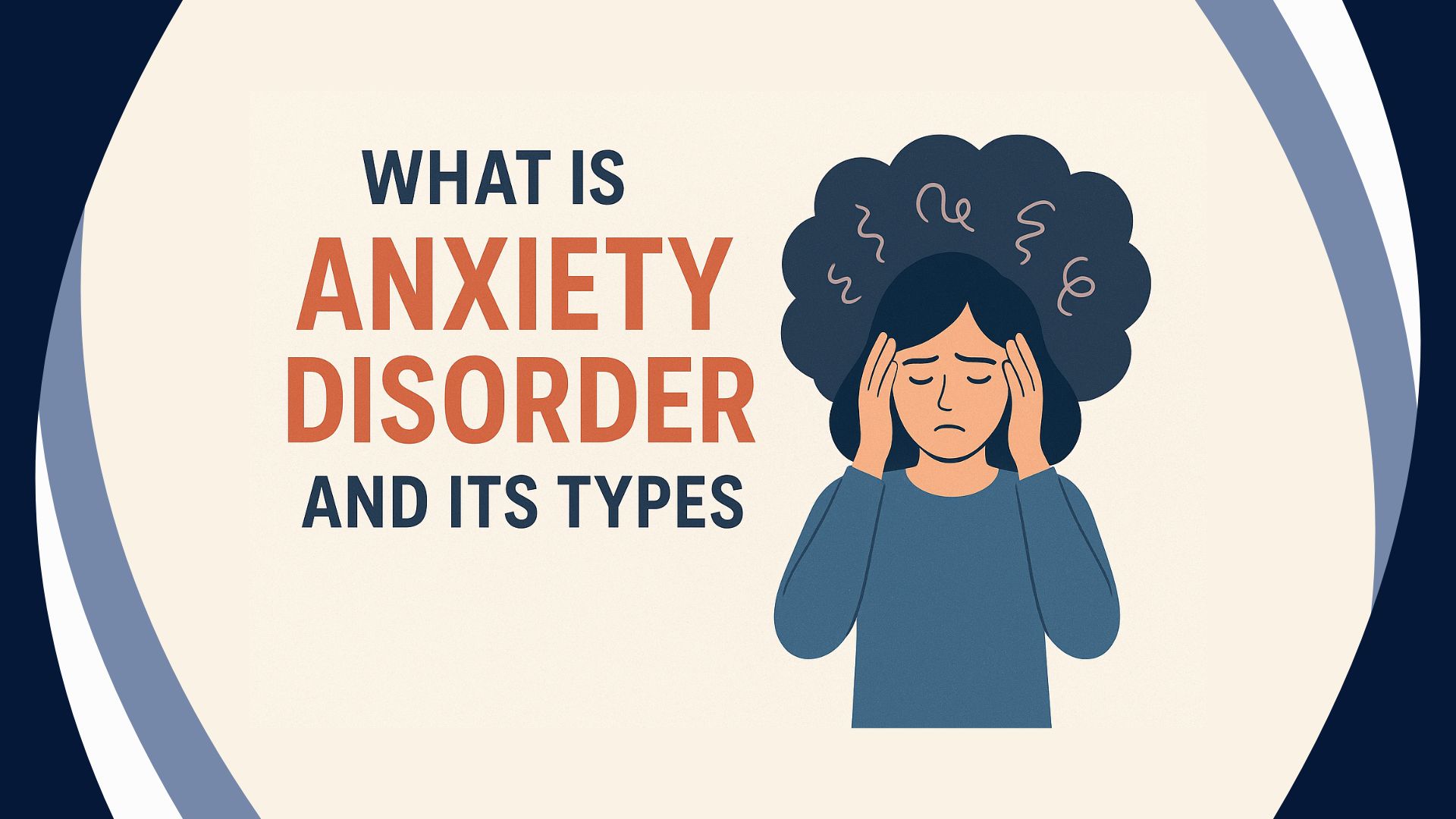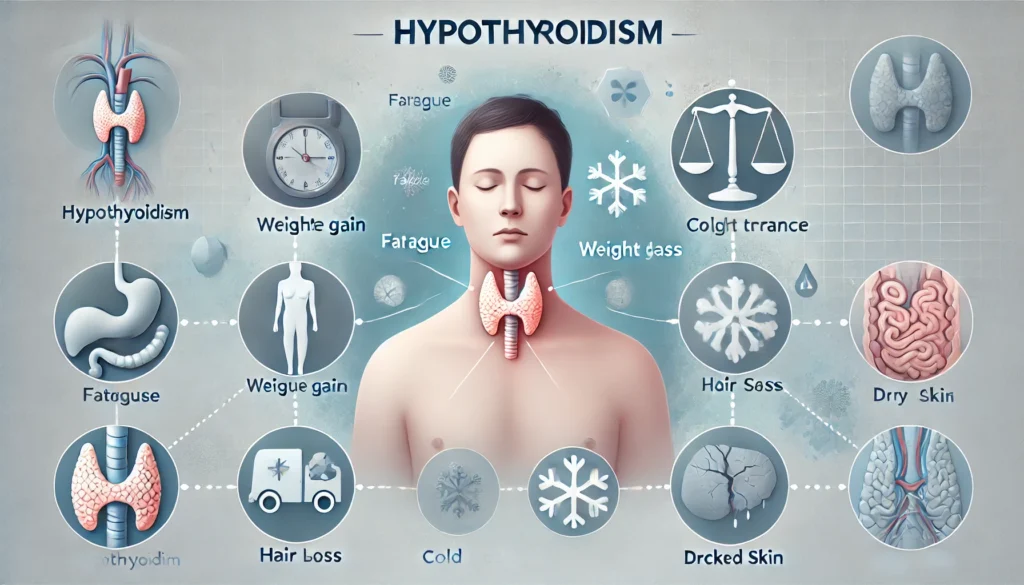
Hyperthyroidism is a condition where the thyroid gland is hyperactive and produces excessive amounts of thyroid hormones. This excess of hormones accelerates the body’s metabolism and can lead to a range of symptoms and health issues. Here’s a detailed overview of hyperthyroidism:
Causes of Hyperthyroidism
- Graves’ Disease: The most common cause, an autoimmune disorder where the body’s immune system attacks the thyroid gland, triggering it to produce excessive thyroid hormone.
- Toxic Nodular Goiter (Plummer’s Disease): An enlarged thyroid gland with one or more overactive nodules that produce excess thyroid hormones.
- Thyroiditis: Inflammation of the thyroid gland, which can cause the gland to release stored thyroid hormones into the bloodstream. This condition can be temporary or acute.
- Excessive Iodine Intake: Consuming high levels of iodine, either through diet or medications, can overstimulate the thyroid gland.
- Thyroid Cancer: Rarely, thyroid cancer can cause the thyroid to produce excess hormones.
Symptoms of Hyperthyroidism
- Weight Loss: Despite an increased appetite, weight loss is common due to accelerated metabolism.
- Rapid Heartbeat (Tachycardia): Heart rate may increase, leading to palpitations.
- Heat Intolerance: Increased sensitivity to heat and excessive sweating.
- Nervousness and Anxiety: Feelings of anxiety, restlessness, and irritability.
- Tremors: Shaking hands or fingers.
- Fatigue and Muscle Weakness: Particularly in the upper arms and thighs.
- Frequent Bowel Movements: Diarrhea or frequent bowel movements.
- Menstrual Changes: Irregular or lighter menstrual periods in women.
- Sleep Disturbances: Difficulty sleeping or insomnia.
- Goiter: An enlarged thyroid gland can cause visible swelling in the neck.
Diagnosis of Hyperthyroidism
- Blood Tests:
- Thyroid-Stimulating Hormone (TSH): Low levels of TSH often indicate hyperthyroidism.
- Free T4 and Free T3: Elevated levels of these thyroid hormones confirm hyperthyroidism.
- Thyroid Antibodies: Testing for antibodies can help diagnose autoimmune causes such as Graves’ disease.
- Imaging Tests:
- Thyroid Scan: Uses radioactive iodine or technetium to evaluate thyroid function and identify areas of excessive hormone production.
- Ultrasound: Helps detect the presence of nodules or inflammation in the thyroid gland.
- Radioactive Iodine Uptake Test: It measures,how much iodine the thyroid gland absorbs, helps to diagnose the cause of hyperthyroidism.
Treatment for Hyperthyroidism
- Medications:
- Antithyroid Drugs: Medications such as methimazole or propylthiouracil inhibit the thyroid gland’s ability to produce hormones.
- Beta-Blockers: Used to manage symptoms such as rapid heartbeat, anxiety, and tremors. They do not treat the underlying hyperthyroidism but it helps to control the symptoms.
- Radioactive Iodine Therapy:
- Purpose: Destroys overactive thyroid cells to reduce hormone production.
- Procedure: Involves taking a pill or liquid containing radioactive iodine. The iodine is absorbed by the thyroid gland, where it emits radiation that destroys excess thyroid tissue.
- Surgery:
- Thyroidectomy: In severe cases or if there is a large goitre or cancer, partial or complete removal of the thyroid gland may be necessary. This option is unlocked when other treatments are not suitable or effective.
Complications
- Thyroid Storm: A rare but serious and potentially life-threatening condition caused by a sudden and extreme increase in thyroid hormone levels, causing symptoms such as fever, rapid heartbeat and confusion. This requires immediate medical attention.
- Heart Issues: Prolonged hyperthyroidism can lead to atrial fibrillation (irregular heartbeat) and heart failure.
- Bone Loss: Chronic hyperthyroidism can lead to bone thinning and an increased risk of osteoporosis.
- Eye Problems: In Graves’ disease, eye symptoms such as bulging eyes, irritation, and double vision can occur (Graves’ orbitopathy).
Lifestyle and Management
- Regular Monitoring: Ongoing blood tests to monitor thyroid hormone levels and adjust treatment as needed.
- Dietary Considerations: Avoiding excessive iodine intake and managing weight through a balanced diet and regular exercise.
- Stress Management: Implementing stress-reducing practices, such as mindfulness and relaxation techniques, can help manage symptoms.
Follow-Up Care
- Endocrinologist Consultation: Regular follow-up with an endocrinologist is essential for managing hyperthyroidism and adjusting treatment if necessary.
- Patient Education: Understanding the condition, treatment options, and how to effectively manage symptoms is important for long-term health.
